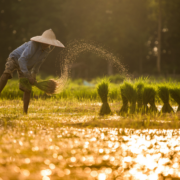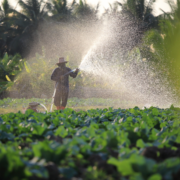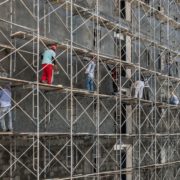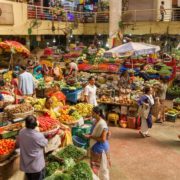
About Jeetendra Prakash Aryal
Jeetendra Prakash Aryal is an economist at the International Center for Biosaline Agriculture, Dubai, United Arab Emirates.COP28: Commitments, contradictions, contention, and challenges
By Jeetendra Prakash Aryal, Tetsushi Sonobe, Augusto Becerra Lopez-Lavalle and Dil Rahut. Posted December 14, 2023

The 28th Conference of the Parties (COP28) showcased significant advancements but also exposed new commitments, contradictions, contentions, and challenges.
COP28 and beyond: Linking agri-food systems, SDGs, and climate action
By Jeetendra Prakash Aryal, Tetsushi Sonobe, Augusto Becerra Lopez-Lavalle and Dil Rahut. Posted December 5, 2023

Historically, failure to bundle multiple measures, such as climate action, finance, and justice, into agricultural policies and programs has impeded progress across several SDGs.
Managing water resources in agriculture can ensure food and water security

The unsustainable use of water resources in agriculture will have severe implications for future food and water security.
Lessons for the informal sector from COVID-19
By Alessia Destefanis, Tetsushi Sonobe, Dil Rahut and Jeetendra Prakash Aryal. Posted August 13, 2021

The informal sector, which employs over 62% of the global population, is a fundamental source of livelihood for over 2 billion people (ILO 2020). Here, “employment” includes self-employment, and the informal sector refers to the part of the economy that is generally not monitored by a tax authority or other forms of government. Before the outbreak of the coronavirus disease (COVID-19), the informal sector accounted for 87.7%, 51.5%, and 55.7% of the population in low-, middle-, and high-income countries, respectively (ILO 2018a).
Rebooting food systems to achieve the unfinished agenda of global food security

Food insecurity continues to be a pressing issue worldwide, despite scientific innovation and technological advancements in agriculture. Therefore, food security continues to be at the center of the global development agenda. The burgeoning demand for food due to exponential growth in the world’s population and the mismatch between demand and supply due to factors such as climate change, loss of soil fertility, land degradation, water scarcity, food loss and waste, and inefficient distribution systems, have exacerbated the problem of food insecurity.
Unraveling the linkages between agriculture and climate change

The connection between climate change and agriculture (both crops and livestock) is complex. On the one hand, agriculture is adversely affected by climate change (Aryal et al. 2020a; Lobell et al. 2011), but on the other hand, it is also one of the major factors exacerbating climate change (Smith et al. 2008; Aryal et al. 2020b). Climate-smart agriculture (CSA) could play a crucial role in reducing GHG emissions and mitigating the adverse effects of climate change.


Search
Subscribe / Connect to Asia Pathways
Subjects
- Accelerating Progress in Gender Equality
- Addressing Remaining Poverty and Reducing Inequality
- Agriculture and natural resources
- Capacity development
- Climate change
- Economics
- Education
- Energy
- Environment
- Finance and Innovation
- Finance sector development
- Gender
- Globalization and Economic Stability
- Governance and public sector management
- Health
- Industry and trade
- Information and Communications Technology
- Infrastructure
- Making Cities More Livable
- Miscellaneous
- Population
- Poverty
- Private sector development
- Regional cooperation and integration
- Sanitation
- Social development and protection
- Strengthening Governance and Institutional Capacity
- Subjects
- Transport
- Uncategorized
- Urban development
- Video Blog
- Water
Recent Posts
- From Crisis to Resilience: The Evolution of the Banking Sector in Asia and the Pacific
- Tariffs on the Table: What Could Be Asia’s Next Move?
- Investing in Childcare a Win for Women and the Economy
- Flush and Flourish: Upgraded Toilets Can Transform Lives in Rural Asia
- New Ways for Climate Finance and Development in Asia and the Pacific




Recent Comments